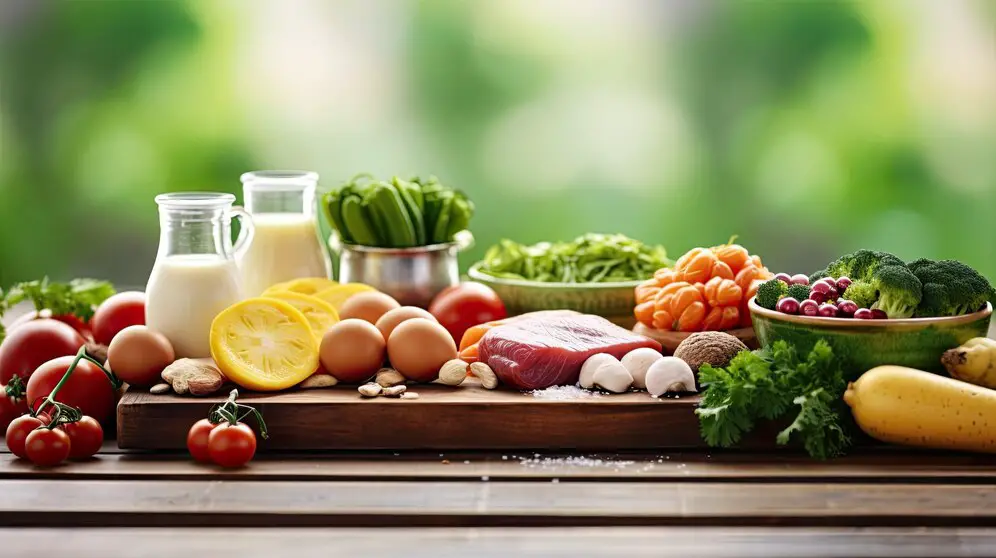31 Refreshing Vegetables to Beat the Heat of Global Warming


As temperatures rise due to the effects of global warming, it’s essential to stay cool and hydrated. While fruits are often the go-to choice for refreshing snacks, vegetables can also offer a cooling and nutritious respite from the heat. Here’s a compilation of 30 refreshing vegetables, including their scientific names and nutritional components presented in a table format.
Page Contents
31 Refreshing Vegetables to Beat the Heat of Global Warming

| Vegetable | Scientific Name | Nutritional Components |
|---|---|---|
| 1. Cucumber | Cucumis sativus | High water content, rich in vitamins K and C, contains silica for skin health and hydration. |
| 2. Celery | Apium graveolens | High water content, rich in vitamin K, contains antioxidants like flavonoids and polyphenols for heart and digestive health. |
| 3. Iceberg Lettuce | Lactuca sativa | High water content, contains vitamin K, folate, and antioxidants, aids in hydration and supports bone health. |
| 4. Zucchini | Cucurbita pepo | High water content, rich in vitamin C and manganese, contains antioxidants like lutein and zeaxanthin for eye health. |
| 5. Bell Pepper | Capsicum annuum | High in vitamin C, contains vitamin A and antioxidants like beta-carotene and quercetin for immune support and skin health. |
| 6. Radish | Raphanus sativus | High water content, contains vitamin C and potassium, rich in antioxidants like sulforaphane for detoxification and digestion. |
| 7. Tomato | Solanum lycopersicum | High water content, rich in vitamin C and lycopene, contains antioxidants for heart health and skin protection. |
| 8. Cabbage | Brassica oleracea | High water content, rich in vitamin C and K, contains antioxidants like glucosinolates for cancer prevention and gut health. |
| 9. Spinach | Spinacia oleracea | Contains vitamins A, C, and K, rich in iron and antioxidants like lutein and zeaxanthin for eye health and inflammation reduction. |
| 10. Romaine Lettuce | Lactuca sativa | High water content, rich in vitamin A and K, contains antioxidants like beta-carotene and lutein for heart and eye health. |
| 11.Cauliflower | Brassica oleracea | High in vitamin C and K, contains fiber and antioxidants like glucosinolates for immune support and cancer prevention. |
| 12. Broccoli | Brassica oleracea | Contains vitamins C and K, rich in fiber and antioxidants like sulforaphane and beta-carotene for heart and digestive health. |
| 13. Cilantro | Coriandrum sativum | High water content, rich in vitamins A, C, and K, contains antioxidants like quercetin and kaempferol for heart and immune health. |
| 14. Green Beans | Phaseolus vulgaris | High in vitamin C and K, contains fiber and antioxidants like catechins for heart health and blood sugar control. |
| 15. Carrot | Daucus carota subsp. sativus | High in vitamin A and beta-carotene, contains antioxidants like lutein and zeaxanthin for eye health and skin protection. |
| 16. Radicchio | Cichorium intybus | High water content, rich in vitamin K and antioxidants, contains anthocyanins for heart health and inflammation reduction. |
| 17. Watercress | Nasturtium officinale | High water content, rich in vitamins K, A, and C, contains antioxidants like beta-carotene and lutein for heart and eye health. |
| 18. Arugula | Eruca sativa | High water content, rich in vitamins A, C, and K, contains antioxidants like flavonoids and glucosinolates for heart and bone health. |
| 19. Bell Pepper | Capsicum annuum | High in vitamin C, contains vitamin A and antioxidants like beta-carotene and quercetin for immune support and skin health. |
| 20, Beet | Beta vulgaris subsp. vulgaris | High in fiber and folate, contains betalains and antioxidants for liver health and blood pressure regulation. |
| 21. Green Peas | Pisum sativum | Contains vitamins A, C, and K, rich in fiber and antioxidants like flavonoids and carotenoids for heart and eye health. |
| 22. Fennel | Foeniculum vulgare | High water content, rich in vitamin C and potassium, contains antioxidants like quercetin and kaempferol for heart and immune health. |
| 23. Artichoke | Cynara cardunculus var. scolymus | Contains vitamins C and K, rich in fiber and antioxidants like cynarin and silymarin for liver health and digestion. |
| 24. Asparagus | Asparagus officinalis | High in vitamins A, C, and K, contains folate and antioxidants like glutathione for heart health and detoxification. |
| 25. Endive | Cichorium endivia | High water content, rich in vitamin K and folate, contains antioxidants like beta-carotene and kaempferol for heart and bone health. |
| 26. Swiss Chard | Beta vulgaris subsp. vulgaris | Contains vitamins A, C, and K, rich in magnesium and antioxidants like flavonoids and betalains for heart and bone health. |
| 27. Turnip | Brassica rapa subsp. rapa | High in vitamin C and potassium, contains fiber and antioxidants like glucosinolates and beta-carotene for heart and immune health. |
| 28. Summer Squash | Cucurbita pepo | High water content, rich in vitamin C and manganese, contains antioxidants like lutein and zeaxanthin for eye health. |
| 29. Eggplant | Solanum melongena | High in fiber and antioxidants like nasunin, contains vitamins K and B6 for heart and brain health. |
| 30. Green Onion | Allium fistulosum | High water content, contains vitamins K and C, rich in antioxidants like quercetin and sulfur compounds for heart and immune health. |
| 31. ohlrabi | Brassica oleracea | High in vitamin C and potassium, contains fiber and antioxidants like glucosinolates for heart and digestive health. |

Incorporating these refreshing vegetables into your diet brings numerous advantages for overall health and well-being.
1. Firstly, their high water content helps in maintaining hydration levels, crucial for combating the heat of global warming and preventing dehydration.
2. Additionally, vegetables are packed with essential vitamins, minerals, and antioxidants that support various bodily functions. From vitamins A, C, and K to fiber and potassium, these nutrients promote heart health, aid in digestion, boost immune function, and contribute to healthy skin and bones.
3. Furthermore, the diverse array of antioxidants found in vegetables helps to reduce inflammation, combat oxidative stress, and lower the risk of chronic diseases such as heart disease and cancer.
4. Moreover, vegetables are generally low in calories and high in fiber, making them an excellent choice for weight management and promoting a healthy digestive system.
Incorporating a variety of refreshing vegetables into your daily meals not only adds vibrant flavors and textures but also provides a plethora of health benefits that contribute to overall vitality and longevity. Likewise, incorporating these refreshing vegetables into your meals can help you stay cool, hydrated, and nourished during the sweltering heat of global warming. Enjoy their delicious flavors and reap the multitude of health benefits they offer!







